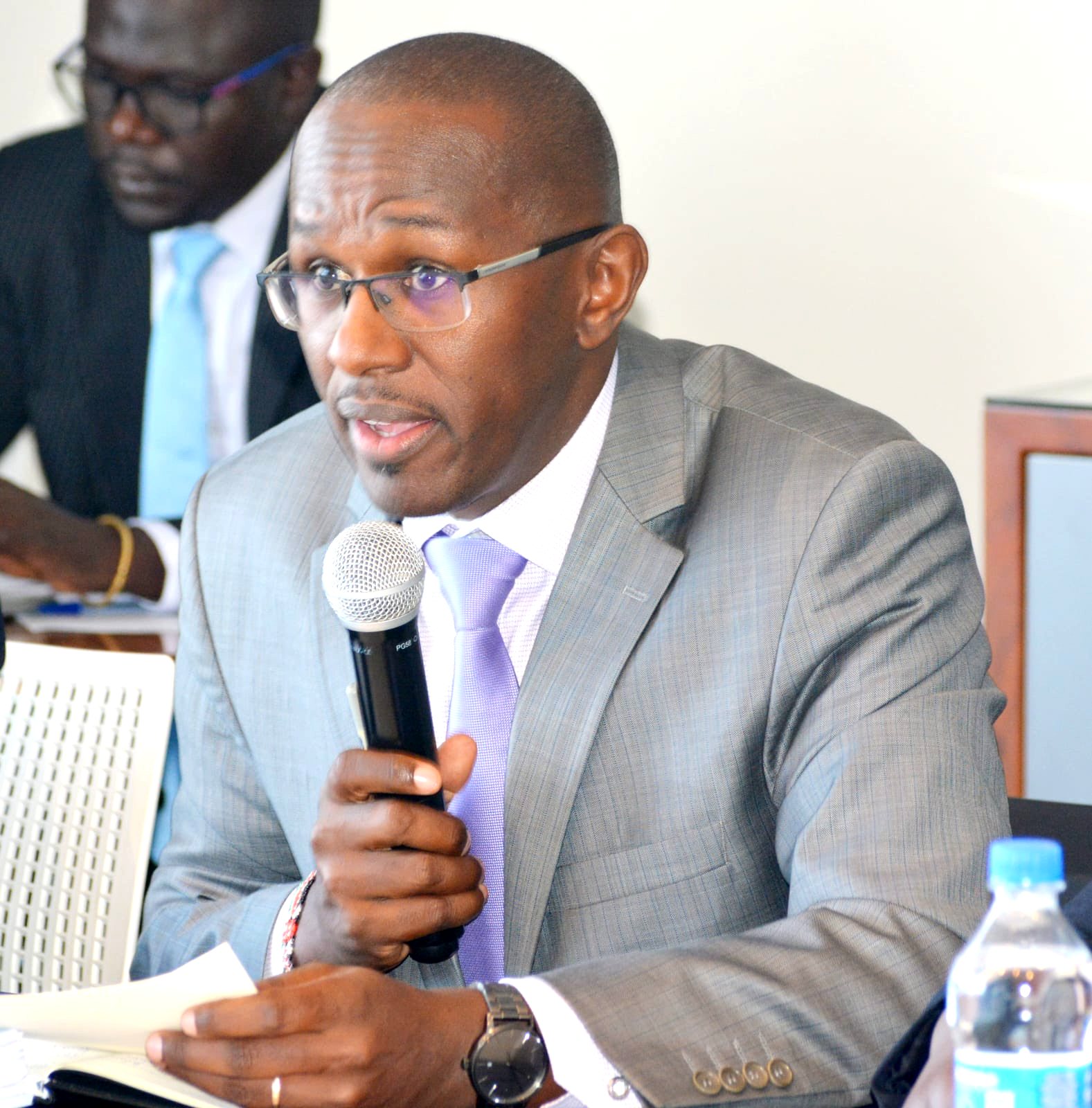By Stephen Makabila.
The Co-operative sector is poised to witness significant changes in the coming months. For instance, a new policy document that gives a road map on how County Governments and the National Government will manage Co-operatives which is now a devolved function, is to be unveiled before the end of March 2017. The State Department for Co-operatives also has Mrs Mary Mungai who is the first ever woman Commissioner for Co-operatives
In an exclusive interview with the Sacco Review, Principal Secretary for the State Department of Cooperatives (PS), Ali Noor Ismail explains what is in store for the industry, plans, challenges and expectations for the Co-operative industry in Kenya, the 7th largest in the world and the fastest growing in Africa.
Below are excerpts from this interview with Convergence Editor, Stephen Makabila.
Q. How many Co-operatives have been registered in Kenya so far?
A. There were over 22,100 registered Co-operative societies by the end of December 2016.This number increases on a daily basis with an average of 150 Co-operative societies registered per month.
Q. How many Kenyans belong to a Co-operative?
A. The industry has a total of 8 million members with more than 4 individuals joining a Co-operative society per day.
Q. There were plans for a national leaders’ conference to validate the Co-operative Policy final draft. Why the delay? Any highlights of the policy paper?
A.The Draft Co-operative Development Policy has already been subjected to selected stakeholders whose views have been incorporated. The draft policy is currently with an independent consultant to add value and will be shared with the Council of Governors before being tabled to a wider stakeholders forum for validation. This should be done before end of March 2017. The highlight of the policy is that it redefines the role of both National and County governments in Co-operative development. It will provide policy guidelines and take stock of changes in the Cooperative sector.
Q. What progress has been made since the first East African Cooperative Conference was held in Nairobi? How far are we to have an East African Cooperative Federation?
A.The report on the conference is available and we are looking at the recommendations with a view to implementing the same. We have already made some achievements in the area of bilateral relations with some countries in the region such as Botswana and Namibia. We have undertaken a Training Needs analysis for Botswana while an MOU has been signed with Namibia and implementation of the same is in progress. We have also had other regional conferences which push for strengthening of the regional Co-operative agenda.
Q. What role is the Ministry and National Cooperatives like NACHU doing to ensure provision of 25 percent national housing needs as per the Vision 2030 blue print?
A. The National and County Governments have continued to promote and register housing and investment co-operatives. At the moment, there are 1,800 and 210 housing and investments Co-operatives respectively with a combined asset portfolio of over Sh 20 billion. Apart from promotion, the ministry and NACOs are lobbying for Co-operatives to be provided with tax incentives, similar to those enjoyed by other mortgage providers. They are requesting for be given mortgage relief if a housing Co-operative can put up at least 100 units. The current minimum is 400 units.
Q. What is the progress towards coming up with a Financial Sector Authority (FSA)?
A. The FSA Bill was as a result of a report on parastatal reforms which recommended the merger of all financial sector regulators. A number of top Co-operatives leaders were sensitized on contents of the Draft FSA Bill in December 2016, including the Parliamentary Committee. Several stakeholders expressed reservations on some of the provisions of the Draft Bill and requested for more time to study the document. However, during a recent visit to State House by key leaders of the co-operative movement, the concern that SASRA is a unique regulating a sector that belongs to members, was put forward. The President said SASRA will not merge with FSA and directed that the regulatory body be strengthened.
Q. Are there any plans to establish a Sacco Guarantee Fund?
A. The Draft Co-operative Development policy is advocating for financial co-operatives to be recognized as financial institutions and therefore be allowed to participate at the Central Cheque Clearing House. In addition, the Sacco Act is being reviewed to enable this to happen.
Q. There are serious governance issues in Cooperatives where members overstay on Management Boards. Any plans for term limits for those serving on these boards?
A. We are in the process of reviewing the Co-operative Societies Act. The ministry will invite stakeholders to give views on various Co-operative governance aspects including putting a limit on how long one can be a director of a Co-operative. Societies are also free to make amendments to their by-laws to put limits on terms of office for their directors and managers.
Q. What efforts are being made to make the Cooperative sector corruption free?
A. The Co-operative sector like any other is not immune to corruption. At the national level we have the EACC which investigates these cases. We are also reviewing the Co-operatives Act 2014 and require signing of Indemnity forms by co-operative leaders, Wealth Declaration forms by those assuming office as well as making relevant provision within the Sacco Act. All these efforts have helped reduce corruption cases in the industry. We also have inspections and inquiries on Co-operative societies that have challenges and capacity building through production and dissemination of anti- corruption messages to Co-operatives.
Q. How can you rate the performance of the Cooperative tribunal in handling complains arising from management of Cooperatives, especially under the devolved system of Government?
A. The Co-operative tribunal has performed extremely well despite operating with inadequate facilities and human resources. The tribunal has managed to reduce backlog of cases from 6,351 to 2,894 over the last four years. At the moment, the Tribunal has daily sittings in Nairobi in addition to having benches in the seven regions.
Q. The State Department of Cooperatives has no representation at the counties following devolution. How does the National Government therefore effectively supervise the Cooperative sector at the grassroots?
A. The state department may not have officers at the counties but there is a very good working relationship between the Commissioner of Co-operative Development and Counties through the Council of Governors. There is an ongoing initiative to establish a working mechanism between the two levels of government in line with provisions of the Intergovernmental Relations Act. We will subject it to the Council of Governors (COG) input.
Further, one of the mandates of the State Department under the Presidential Executive Order No. 1 of 2016, is capacity building. We are therefore working with the County Governments to build capacity in the sector.
Q. The registrar of trade unions granted authority for the formation of a union to fight for rights of employees in the cooperative sector who have been subjected to exploitation and underpayment. Any plans to help the Kenya National Union of Co-operatives (Knucs) in its push for a scheme of service for the Co-operative sector?
A. This is a new development, but the State Department of Co-operative is ready to assist or advice on issues relating to human resource development in the Co-operative sector.

